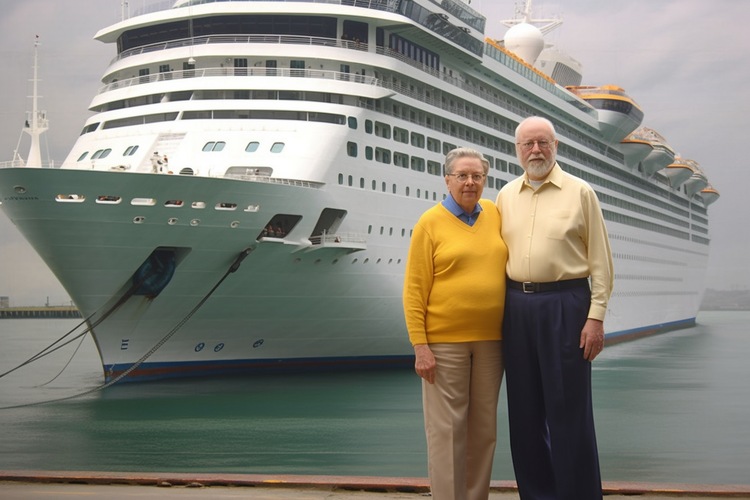Senior Cruises: Your Guide to Ocean Travel in Retirement
Discover how cruising can be the perfect vacation choice for seniors: comfortable accommodations, onboard social life, diverse activities, and simplified budgeting thanks to many inclusive options. This guide helps older travelers pick the right ship, prepare medically and practically, and understand typical costs for ocean and river cruises so you can sail confidently and comfortably.

Cruising can be an ideal way for older travelers to see the world without sacrificing comfort. Floating resorts combine relaxation, social opportunities, and easy logistics so seniors can enjoy new destinations, fine dining, and memorable experiences with minimal hassle. From grand ocean liners to cozy riverboats, there are options to match a variety of tastes and budgets.
Why cruising appeals to seniors
A big draw for many older passengers is the social atmosphere. Cruises offer numerous chances to meet fellow travelers, join group activities, or relax in quieter corners with new acquaintances. Because many cruises bundle accommodations, most meals, and a range of onboard entertainment into the upfront fare, planning and budgeting are often simpler than for land-based trips.
Choosing the right ship
Pick a vessel that fits your comfort level and travel goals. Large ships usually feature extensive amenities, multiple dining venues, and a wide schedule of shows and activities, but their size can feel impersonal or busy. Smaller ships create a more intimate ambiance and frequently call on ports that larger ships cannot reach.
Look for accessibility features such as wide hallways, elevators, and cabins designed for mobility challenges. Modern ships commonly include handrails, accessible restrooms, and other design elements that make getting around easier. Before you book, review the ship’s onboard medical services and emergency procedures—this is especially important for longer cruises.
Also think about the itinerary and travel pace. Some seniors favor port-heavy trips with frequent excursions and sightseeing; others prefer itineraries with more sea days for leisurely onboard time. Finally, check dining options to ensure the line can meet any dietary needs or restrictions.
Activities tailored to seniors
There’s something for almost every interest level aboard today’s ships. If you’re after quiet and restoration, you’ll find spas, reading lounges, adults-only relaxation areas, and ocean-view spots perfect for unwinding. Many ships have pools and hot tubs, including sections reserved for adults.
For active travelers, fitness centers, walking tracks, and low-impact classes such as chair yoga, tai chi, or gentle stretching are common. Enrichment programs—like guest lectures, cooking demos, and art workshops—offer mental stimulation and the chance to learn new skills. Evenings typically bring theatrical productions, live music, dancing, and themed events for socializing. On larger vessels you may also find casinos and other late-night entertainment.
Preparing for your cruise
Good preparation reduces stress and helps you enjoy the voyage. Start with a visit to your doctor to confirm you’re fit to travel, review necessary vaccines, and discuss any medications. Carry prescriptions and important medical documents with you, and keep daily medications in your carry-on luggage.
Consider buying travel insurance that covers medical emergencies, evacuations, and trip cancellation; some policies also cover pre-existing conditions if purchased in time. Pack clothing suitable for both casual days and formal or themed evenings, and don’t forget sturdy walking shoes for shore excursions and any mobility aids you require.
Familiarize yourself with the ship before you sail: many cruise lines offer virtual tours and deck plans online. Studying these materials ahead of time makes it easier to locate dining rooms, medical centers, accessibility features, and activity areas once onboard.
Typical costs and what they cover
Cruise prices vary widely by line, itinerary, cabin category, and season. The examples below are approximate per-person ranges for a seven-night cruise and should be used as a general guide:
- Budget Caribbean (e.g., Carnival Cruise Line): $500 - $1,000 for 7 nights
- Mid-range Mediterranean (e.g., Royal Caribbean): $1,000 - $2,000 for 7 nights
- Luxury Alaska (e.g., Silversea Cruises): $3,000 - $5,000 for 7 nights
- European River Cruise (e.g., Viking River Cruises): $2,000 - $4,000 for 7 nights
These fares typically include stateroom accommodations, meals in main dining areas, and standard onboard entertainment. Extra expenses commonly include gratuities, specialty restaurants, shore excursions, alcoholic drinks, internet access, and spa treatments. Many lines run senior discounts or promotions, so be sure to ask when booking.
All-inclusive and package options
Some cruise lines offer all-inclusive or near-all-inclusive packages that bundle items such as beverage plans, Wi-Fi, shore excursions, and onboard credits. For seniors who plan to use multiple amenities, these packages can simplify budgeting and sometimes provide better overall value.
Final thoughts
With careful planning and attention to personal needs, cruising can be an accessible and delightful travel choice for seniors. Evaluate ships for accessibility and medical support, choose an itinerary that matches your activity level, prepare medically and practically, and compare pricing and package options. Whether you want a short escape or an extended voyage, there’s a cruise experience suited to your retirement years that balances comfort, companionship, and discovery.




